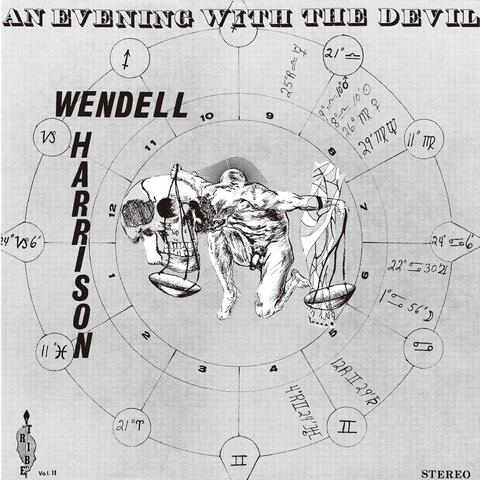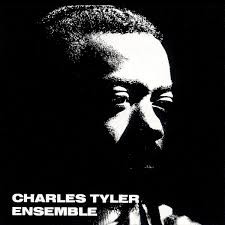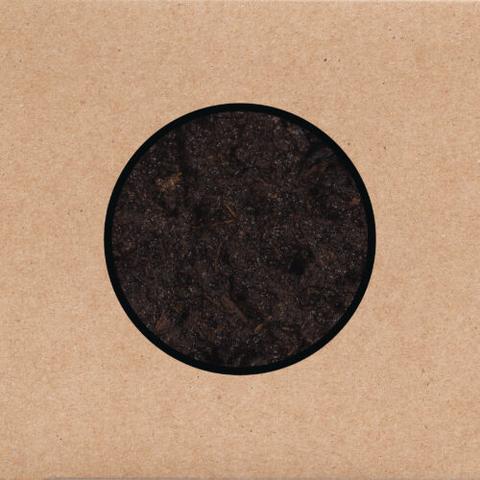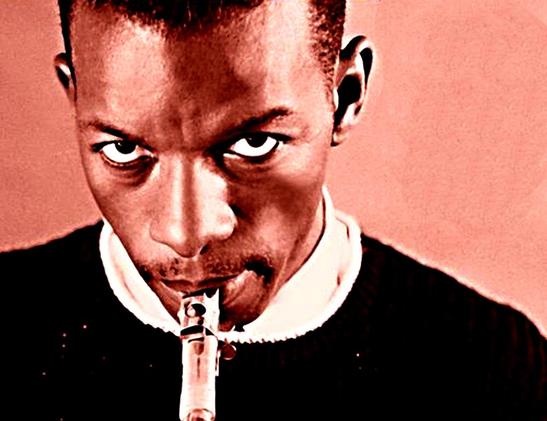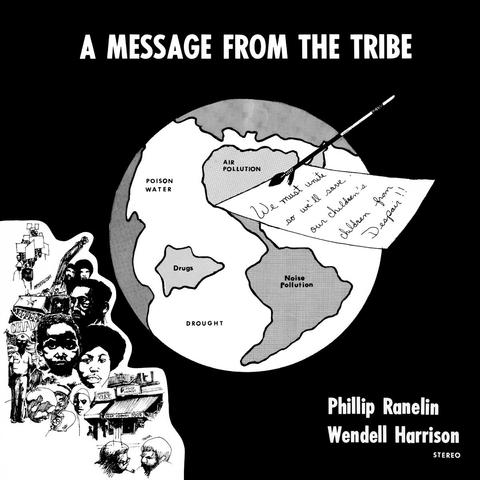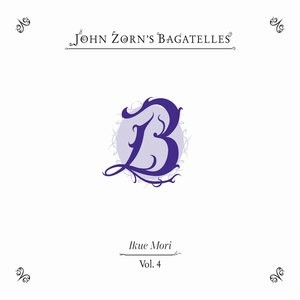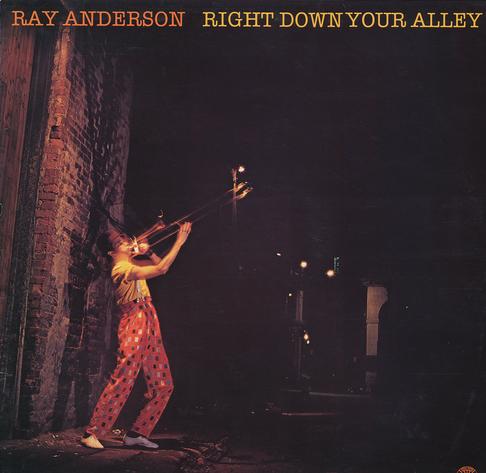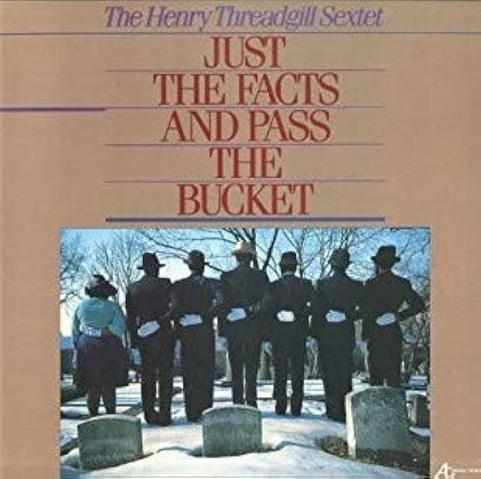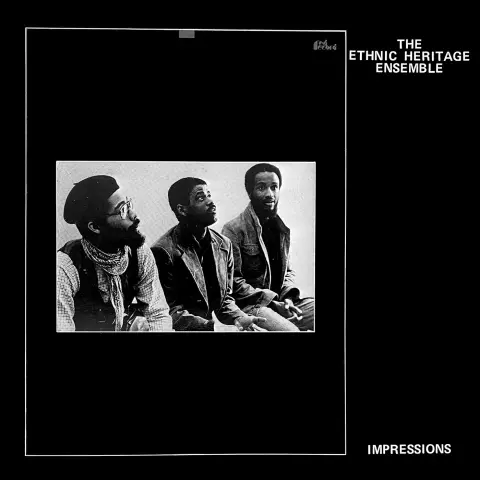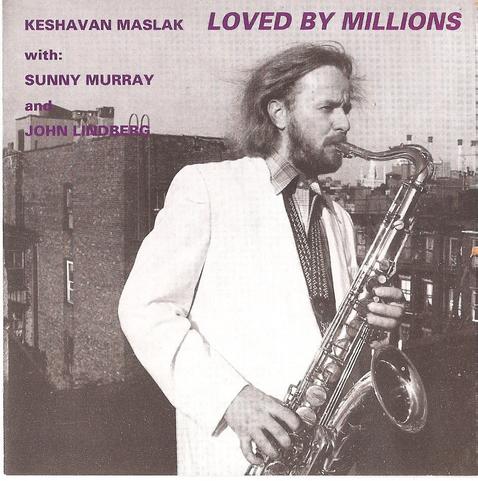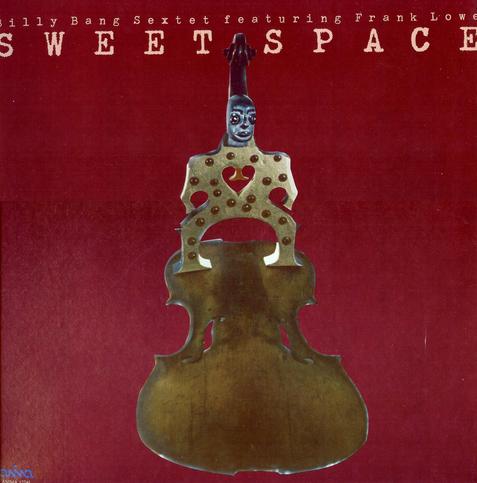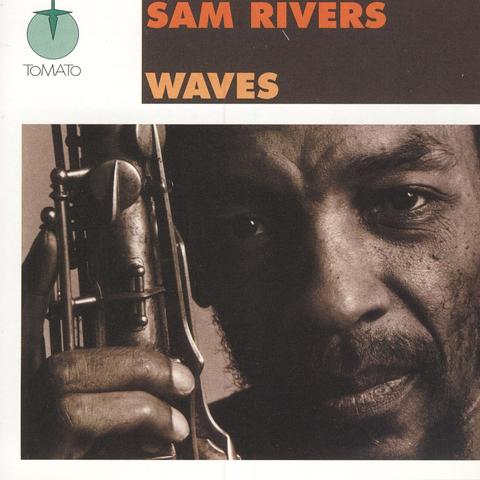♬〜 Alexander Hawkins - Crinkle, Crinkle Song Unconditional
#FreeJazz #Jazz #Piano #AvantJazz #Instrumental #NowPlaying
Recent searches
Search options
#freejazz
An Evening With the Devil by Wendell Harrison released in 1973 on Tribe Records
"Following the 1972 release of Message From The Tribe, the second release from vaunted spiritual jazz label Tribe, was co-founder Wendell Harrison’s solo debut, An Evening With The Devil. Originally included on the A-side of Message From The Tribe’s first version (the edition featuring a photo of a quay on the cover), the release of An Evening With The Devil in 1973 saw the suite fully realized, with two additional songs and studio knowhow making the album a true spiritual jazz masterpiece." - Light in the Attic Records
This week's Vinyl Assault Vehicle generates a collapsing supernova out of the mystery and chaos of the musical universe. Interesting opinionoid: If you play music loud and long enough it blots out all the rest of existence!
https://bit.ly/VAV052825
Happy B-days to Stephen Malkmus, Paul Weller, Harry Smith and Moondog!
Festival : à Coutances, Marion Rampal rend hommage à Abbey Lincoln, « une artiste à la savante métamorphose »

Charles Tyler Ensemble is the debut album by American jazz saxophonist Charles Tyler, which was recorded in 1966 in New York City and released on ESP-Disk.
By 1965, Tyler was added as the third horn in Albert Ayler's band. That association is documented by Bells and Spirits Rejoice. The following year, Bernard Stollman offered Tyler the opportunity to record his first album as leader on ESP-Disk. The band features an unusual instrumentation for its time, using cellist Joel Freedman and bassist Henry Grimes from Albert Ayler's group along with Charles Moffett on mallet instruments and a young Ronald Jackson (later known as Ronald Shannon Jackson) on drums. Although primarily known as a baritone saxophone player, Tyler plays alto saxophone on four original compositions. - Wikipedia
YOU KNOW WHO YOU ARE: If you haven’t subscribed to Wire magazine yet, shame on you!!!
By Dear Hollow
It’s hard to keep up with Swans. Since 1982, Michael Gira and company have cranked out sixteen studio albums, eight EPs, and ten live albums (not to mention all the compilations and side projects), influencing underground stalwarts like Godspeed You! Black Emperor, Neurosis, Godflesh, and Napalm Death, as well as more mainstream acts like Nirvana and Tool. No genre was safe, as noise rock, no-wave, industrial, sludge, post-punk, and post-rock were impacted in the process – yet Swans have always had their own inimitable and uncategorizable sound. In Gira’s words, “Swans are majestic, beautiful-looking creatures – with really ugly temperaments.” Seventeenth studio album Birthing, a supposed end to the big sound of Gira’s millennial reformation, is an affirmation of both why some love them and why others stay far away. Maybe the real Swans were the friends we made along the way.
The path of Swans has been one of blending ugliness with a sheen of pristineness. They’ve had it all, from the ugly industrial sludge of Filth and Cop, the more regal industrial noise rock of Greed and Holy Money, the Gothic rock groovers of Children of God, the lush starkness of White Light from the Mouth of Infinity, the post-rock-imbued apocalyptic prophecies of The Great Annihilator and Soundtracks for the Blind, the trancelike 2010s comeback My Father Will Guide Me Up a Rope to the Sky, the formidably monolithic trilogy The Seer, To Be Kind, and The Glowing Man, to the minimalist folk-embedded Leaving Meaning and The Beggar. If you wanted to devote a week to the Swans discography, have at it. Or get into the process of Birthing.
In spite of its higher focus on more acoustic textures and Michael Gira’s wild baritone, Swans’ use of repetition is a tether to which their grasp of reality is consistently mutilated, interspersed with moments of sparse accessibility. Seven tracks and nearly two hours of content greet the ears with repetition both nauseating and hypnotic, tracks undeniably modern-era Swans: folkier, more acoustic and organic, and retaining that trademark longwindedness and industrial/noise barb, shifting from mood to mood with ease. You’ll hear painful dissonance, ritualistic passages of pounding percussion, Gira’s unnerving vocal lines, and synth-heavy crystalline atmosphere exchanged across mammoth runtimes. Especially in the first act, ugly stretches stitch together more uncanny valley passages of accessibility, like a synth rock jam session with pulsing basslines (“I Am a Tower”), beautiful piano ballads graced by spidery melodies and Jennifer Gira’s haunting vocals (“Birthing,” “Guardian Spirit”), catchy little choral “bum bums” (“The Merge”), and instrumental ambient swells (“The Healers,” “(Rope) Away”).
Gira and company find themselves in an odd predicament: in the shadow of their own influence. Swans has smartly focused on more acoustic and organic textures with their most recent releases, but in comparison to the 80’s and 90’s, and even the 2010s, Birthing cannot hold a candle. No one can do music like Swans, but it feels as though the trilogy of The Seer, To Be Kind, and The Glowing Man was Tsar Bomba, and every subsequent release has been the fallout. Likewise, the raining ash of Birthing is lethal, unnerving, and undeniably Swans, but it doesn’t feel as monumental. The only track that feels crucial is the absolute fever-dream “The Merge” in its wholehearted dive into the abyss. Each track features Swans-isms that sear themselves into your brain if you let them, but therein, very few moments justify why you should devote two hours to listening to them – especially if you are not a fan to begin with. Their focus has never been to be catchy, impress with riffs, or go wild with novelty – as such, the trademark tapestries of droning dissonance (“I Am a Tower,” “Guardian Spirit”), free jazz/industrial noise explosions (“The Merge”) are just difficult – aside from Swans’ inability to edit.
I may be Swans lone apologist at AMG HQ, and maybe I’m insane for it. Birthing is nowhere near the influence of its predecessors – while retaining that noise and industrial sneer throughout, it’s a far more gentle album than the ugly classics of the band’s heyday. However, it’s probably the best of its era, blending its bad temperament with its more post-rock atmospheres and semi-accessible passages that keep listeners this close to insanity. That being said, it’s still Swans. And a whole lot of Swans. Two hours of Swans. Yay/ugh.
Rating: 3.5/5.0
DR: 7 | Format Reviewed: 320 kb/s mp3
Label: Young God Records
Websites: swans.bandcamp.com | facebook.com/SwansOfficial
Releases Worldwide: May 30th, 2025
#2025 #35 #Ambient #AmericanMetal #Birthing #Experimental #ExperimentalAmbient #FreeJazz #Godflesh #GodspeedYouBlackEmperor #Industrial #May25 #NapalmDeath #Neurosis #Nirvana #NoWave #Noise #NoiseRock #NonMetal #PostRock #postPunk #Review #Reviews #SludgeMetal #Swans #Tool #YoungGodRecords
Ornette Coleman The Shape Of Jazz To Come
https://www.youtube.com/watch?v=kcslwKxCTR0&list=PLvzgIRc5GZr67SI87kjreLo-fztaZOTqz&index=28
#jazz #art #jazzstandards #jazzmusic #jazzlegends #freejazz #blues
Just in time for yr long weekend it's an all-new Vinyl Assault Vehicle: https://bit.ly/vav052125
We all need a vacation from this sh*t! But when yr guard's down is when they push an Executive Order that sez "Creed is now the only band." REVOLT OF THE EARZ!
Message from the Tribe by Phil Ranelin and Wendell Harrison released on Tribe Records in 1972.
"Phil Ranelin (born May 25, 1939) is an American jazz and experimental music trombonist.
Career
Ranelin was born in Indianapolis and lived in New York City before moving to Detroit in the 1960s. He played as a session musician on many Motown recordings, including with Stevie Wonder. In 1971, he and Wendell Harrison formed a group called The Tribe, which was an avant-garde jazz ensemble devoted to black consciousness. Alongside it he co-founded Tribe Records. He released several albums as a leader in the 1970s, and continued with The Tribe project until 1978. Following this, Ranelin worked with Freddie Hubbard." - Wikipedia
Message from the Tribe was the bebut release from the Tribe and is a sublime classic of spiritual jazz.
https://www.youtube.com/watch?v=TCKHCgRHYtc&list=OLAK5uy_nygMS1kOWC1HDCWrLLR-Ne1J_BeNBeqrQ
Djrum - A Tune for Us
Starting today! We are presenting our album "Extempore - Dream of frequencies" on this little tour. Looking forward to play with these guys.
♬〜 John Zorn - Bagatelle #178 The Bagatelles Vol. 4
#Jazz #AvantGarde #AvantGardeJazz #FreeJazz #FilmScore #NowPlaying
Right Down Your Alley by Ray Anderson released in 1984 on Soul Note.
Right Down Your Alley Review by Scott Yanow
"Trombonist Ray Anderson's third set as a leader (following fairly obscure efforts for the Auricle and Moers Music labels) uses the same trio that was on his first release. Anderson interacts closely with bassist Mark Helias and drummer Gerry Hemingway. The occasional infectious rhythms and the trombonist's often wild humor keep the music (all originals by bandmembers) from ever getting dull or predictable."
https://www.youtube.com/watch?v=HusagKLGcu4&list=OLAK5uy_lSpruann6scRi4aizyFTTXMx-aLyfQ1Kw&index=1
Just the Facts and Pass the Bucket is an album by Henry Threadgill released on the About Time label in 1983. The album features six of Threadgill's compositions performed by Threadgill with Craig Harris, Olu Dara, Fred Hopkins, Diedre Murray, Pheeroan akLaff and John Betsch.
The Allmusic review by Arwulf Arwulf states, "Musically, this album is a marvel of collective creativity. Threadgill's approach to his art is comparable to that of Muhal Richard Abrams and other cardinal members of the Association for the Advancement of Creative Musicians". - Wikipedia
https://www.youtube.com/watch?v=Rovmm19eYFk&list=PLKHnELejEi0fxQbcuKrFONCIkaHmyCIhe&index=1
Impressions by Ethnic Heritage Ensemble released on Red Record in 1982
"Listen to the album and dive into a real kaleidoscope of sonorities coming from a wide-open vision of the musical concept. There is ‘free’ in this music, its more poetic side, there is Africa, its beating rhythm, there is all the love that afro-americans of that time were putting into a music considered as an exploration journey. (Nicola Gaeta, liner notes)
Loved by Millions Review by Thom Jurek
"Recorded way back in 1980, before the trickster saxophonist Keshavan Maslak took on the moniker Kenny Millions and went completely crazy as a free jazz blower, he was a relatively sane jazz musician with a penchant for all things Beat -- as in Generation. On this date with avant drum god Sunny Murray and New York bassist John Lindberg,..This is a gorgeous record, made when no one was paying attention to what Leo Fegin was attempting to do (do they now?) by bringing modern creative jazz into the public eye. Few people have heard this record, but if they had, they'd want to own it. All it would take is a listen to the penultimate track, a sensitive, bleating love ballad played on bass clarinet called "When You Look at Me, I Want to Vomit." 'Nuff said."
Jim O'Rourke | NTS Radio | May 2025
"Avant-garde musician and composer Jim O'Rourke pulls stops by once a month, pulling an hour of picks from his extensive record collection."
https://www.nts.live/shows/jim-o-rourke/episodes/jim-o-rourke-15th-may-2025
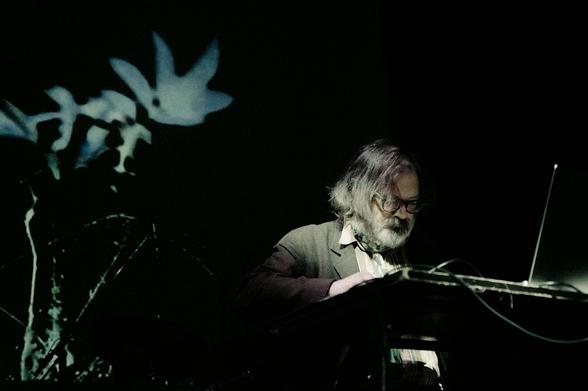
Sweet Space is a live album by the Billy Bang Sextet, led by violinist Bang, and featuring tenor saxophonist Frank Lowe, alto saxophonist Luther Thomas, cornetist Butch Morris, pianist Curtis Clark, double bassist Wilber Morris, and drummer Steve McCall. It was recorded on November 15, 1979, at the Loeb Student Center of New York University in New York City, and was released on vinyl later that year by Anima Productions.
Bill Shoemaker of Point of Departure commented: "each musician played an integral role in creating an ebullient, deceptively shambling ensemble sound," and stated that Butch Morris's "Music for the Love of It" "has a supple grace that makes it a fine set-closer, possessing enough elasticity for each musician to momentarily stretch the material without disfiguring it." - Wikipedia
Waves is an album by American jazz saxophonist Sam Rivers, recorded in 1978 and released on the Tomato label.
The AllMusic review by Ron Wynn stated: "An explosive late '70s set with underrated composer, multi-instrumentalist, and arranger Sam Rivers leading a strong quartet... Their array of contrasting voicings, with Rivers on tenor and soprano sax and flute, makes for compelling listening".
The authors of The Penguin Guide to Jazz called the album "a neglected masterpiece from one of the most interesting of Rivers's small groups," and wrote: "It's a shame this fine record hasn't had wider currency." - Wikipedia


